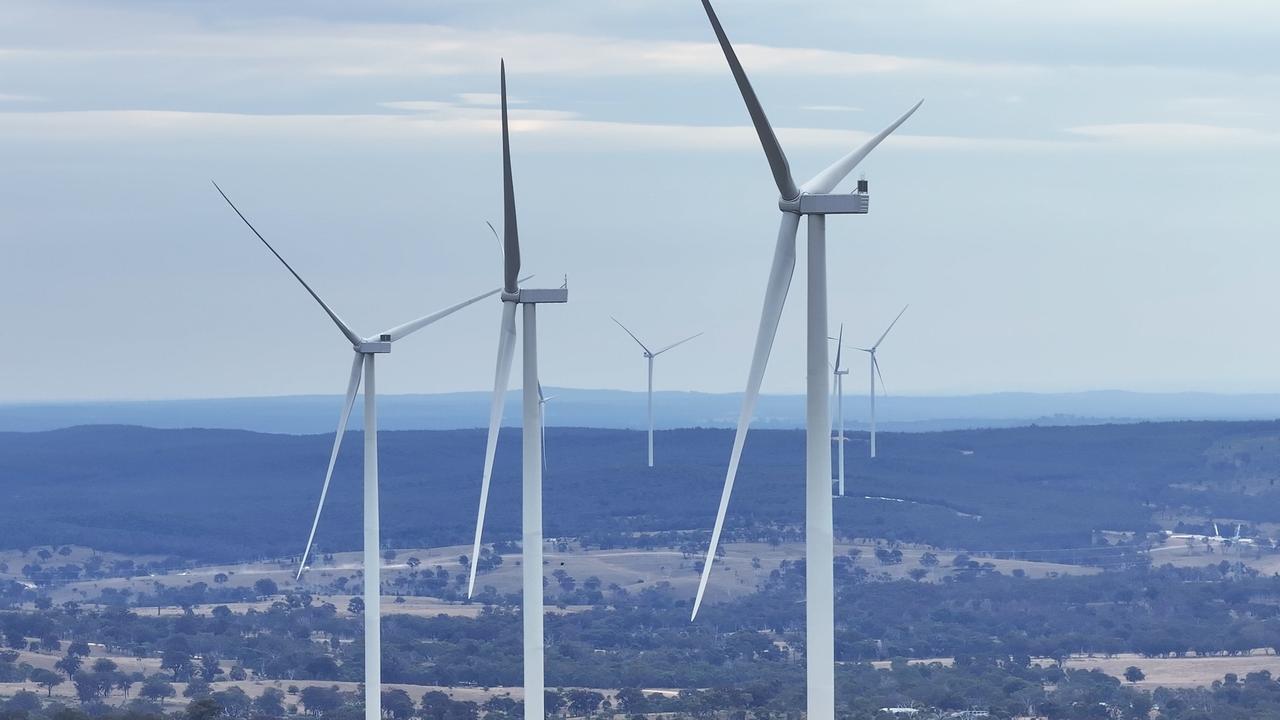Rio Tinto’s boss tour China from the ground floor
With Australia and China talking again, the mining boss is getting a close-up view of the potential.
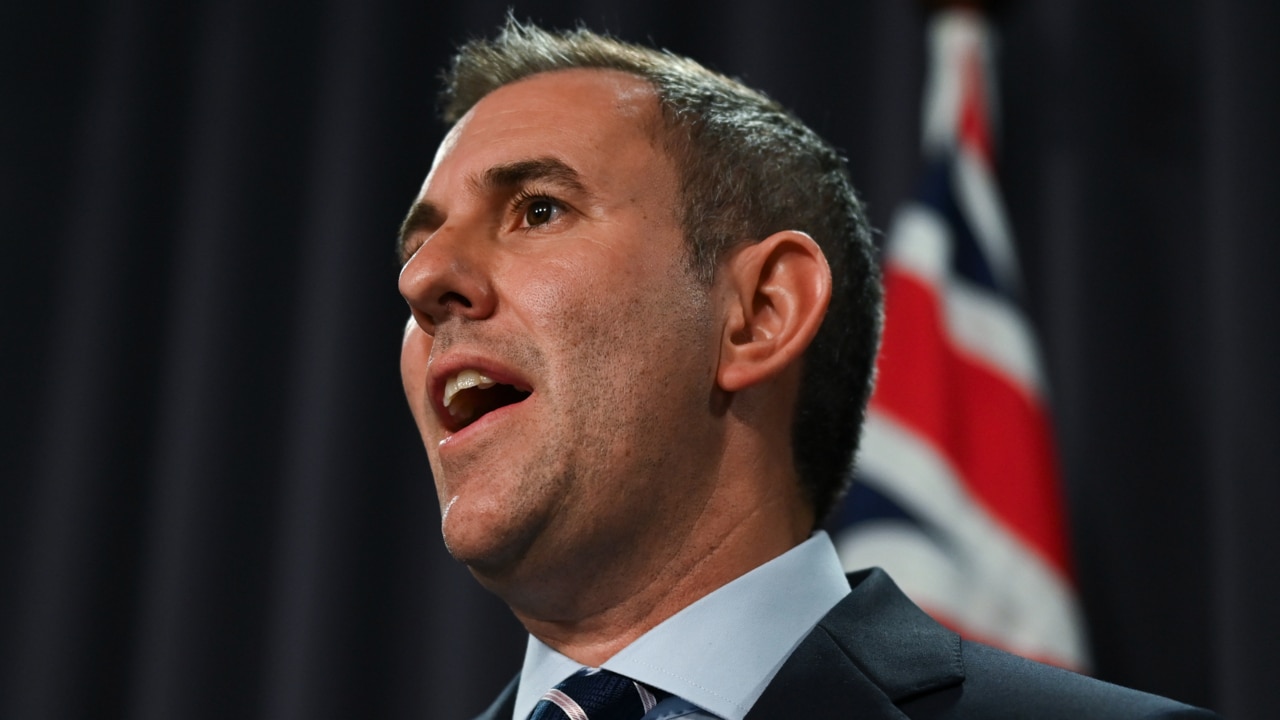
Business
Don't miss out on the headlines from Business. Followed categories will be added to My News.
Over the past week, Rio Tinto chief executive Jakob Stausholm has travelled up and down China meeting with big steel mill customers who are also buyers of millions of tonnes of Pilbara iron ore.
Stausholm’s tour has culminated in Shanghai for the massive China International Import Expo that opened on the weekend, and the global mining boss is even pitching in to help staff the Rio Tinto booth at the influential trade event.
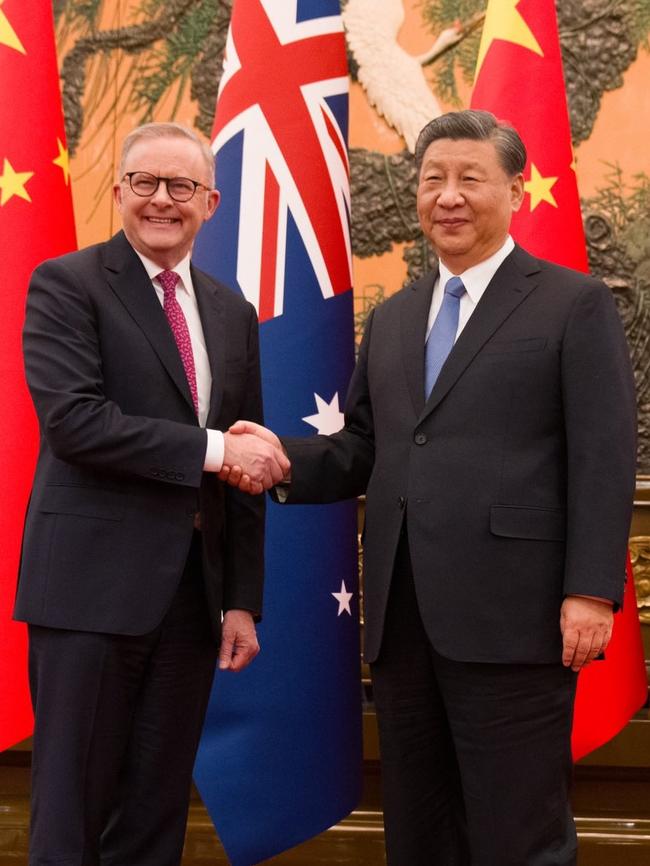
Influential because Chinese President Xi Jinping was a driving force behind the expo six years ago, designed to connect global businesses with partners in China. US companies too are warming to the expo. US carmakers, several big industrials and even US tech giant Microsoft are attending.
Xi couldn’t make the opening this year but sent his top officials. This year’s event coincided with a significant moment in Australia-China relations, with Prime Minister Anthony Albanese stopping by to deliver an address as part of his official visit to China that this week included talks with Xi in Beijing.
It marks a turning point following the clear strains on both sides of the relationship over recent years. Leaders of both countries have declared a resumption of regulator talks and want to work on developing bilateral ties for the long run. Albanese also invited Xi to Australia.
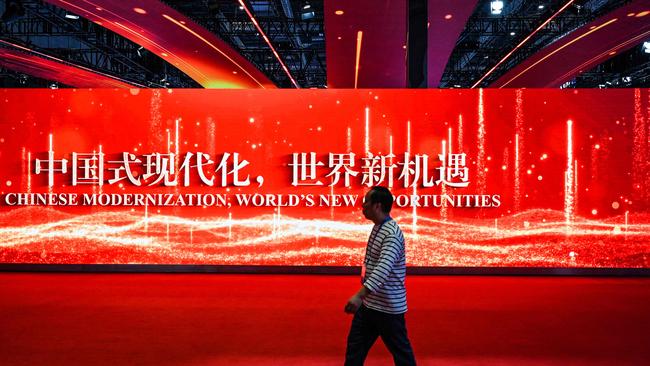
While iron ore sales were not impacted through the cooling of trade, other key Australian exports, including wine and barley, were hit with punishing tariffs. Even, at times, Australian coal exports had a tough time getting into the country.
Stausholm, who also caught up with Albanese in Shanghai, welcomed the idea the two leaders were talking again.
“I think one of the things that I am impressed with is Chinese business leaders say it’s difficult to find two countries on the planet that are more complementary,” the Rio Tinto chief executive tells The Australian from Shanghai.
“Therefore, the benefit of trade between the two nations is second to none.”
Stausholm’s visit comes while the rest of the world is instead focusing on the slowing Chinese economy. Growth momentum has slowed coming out of the Covid-19 lockdowns, weighed down in particular by stresses in the property market, which is affecting consumer confidence.
Beijing has set a modest target of 5 per cent growth this year.
The Rio boss is optimistic about the outlook for the economy, despite the recent slowing. The rapid shift to electric vehicles through the economy and other decarbonisation efforts is underpinning growth, he says.
“EVs are becoming a huge export success as well. So that, of course, provides good demand for our products. Infrastructure continues to be built at pace. So those two areas are doing very well,” he says.
“We all know that the property sector has been under pressure, but if you take the three things together, the economy is actually growing pretty well.
“I think that (China’s) growth is going to be very close to the 5 per cent that they have stated. So it actually feels quite good. And of course, they don’t have to fight inflation that the rest of the world has.”
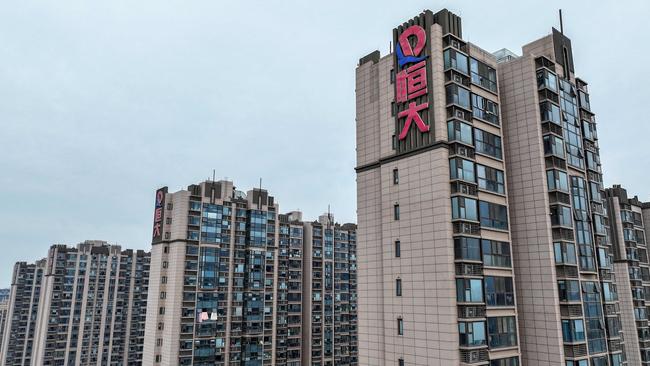
Earlier Tuesday the deputy governor of the People’s Bank of China, Zhang Qingsong,
gave a speech in Hong Kong where he said although China faces some growth challenges, “in general the economy is resilient”.
The top finance official noted growth momentum had picked up in recent quarters, helped by strength in newer sectors from EVs, solar technology and batteries.
Significantly, he was open about local government debt strains, acknowledged that some had “structural issues” with high levels of debt, but was confident this could be managed. Property markets too, fuelled by years of fast-paced development, were undergoing a much-needed shake-out, Zhang said.
“From time to time supply and demand may experience a major shift and a correction. This is natural selection and a market clearing process,” Zhang told the Hong Kong summit.
Having said that, we also need to manage the pace to avoid sharp downturn and unintended consequences.”
UBS resisted Credit Suisse
Colm Kelleher, the global chairman of UBS and now regarded as Europe’s most powerful banker, offered some revealing insights about the shotgun merger his bank undertook earlier this year with struggling cross-town rival Credit Suisse.
In short, he didn’t want to do it.
Speaking in Hong Kong earlier Tuesday, there was also a warning from the usually low-profile Kelleher that regulators were looking in the wrong areas when it comes to trying to make banks safer.
With Credit Suisse badly bleeding cash through March, a $US3.2bn ($5bn) emergency deal bringing together the rival investment banks was brokered in the middle of March by Swiss regulators.
It came about as banking markets reached the highest stress points since the global financial crisis on the back of the collapse of tech lender Silicon Valley Bank weeks earlier and emerging strains across two other US regional banks.
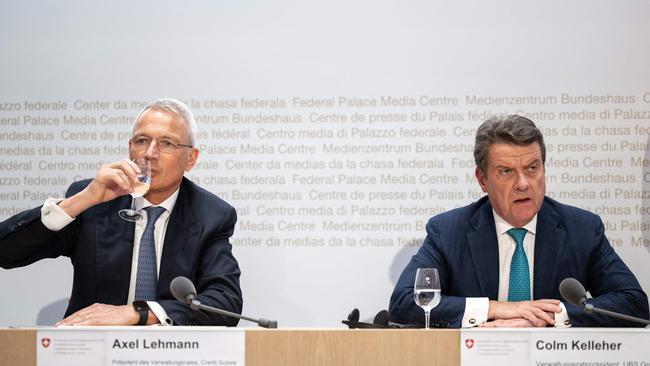
Through 2022, Credit Suisse’s financial stresses were becoming more apparent, even after a new management had attempted to stabilise the bank that had been carrying heavy losses.
“It was very clear that we at UBS did not want to do the deal,” Kelleher told the top-level banking conference organised by the Hong Kong Monetary Authority. Instead, UBS was determined to focus on its own strategy, said Kelleher.
“Given that we felt that we would get a call potentially not necessarily as the takeover but certainly as a validator, as a board we got ready.”
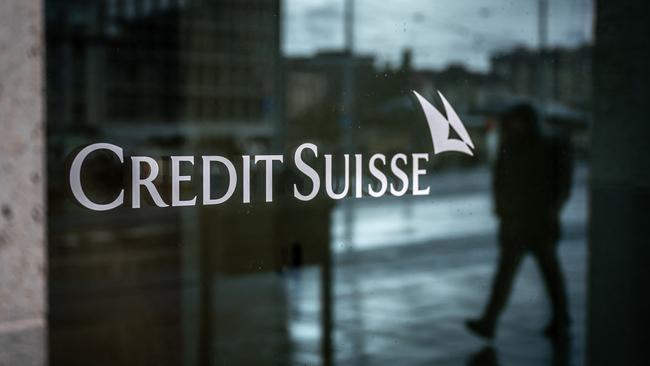
UBS had enlisted investment bank Morgan Stanley as its own adviser “to get ready for this call that we didn’t want”.
Kelleher revealed that a number of his own big shareholders had also written to him directly, warning him not to do it. “Under no circumstances are you to contemplate a merger with Credit Suisse,” Kelleher said he was being told by investors.
UBS agreed to take over the 167-year-old Credit Suisse on March 19 and the emergency sale was backed by the Swiss government. The deal was finalised in June and UBS is now pushing ahead with the mammoth task of merging the two lenders – including in Australia.
Kelleher, who joined UBS from Morgan Stanley in early 2022, acknowledged the deal had stabilised what had been a volatile time unfolding on global markets. The transaction, which had been supported by global regulators, was also a satisfactory outcome for shareholders, he said.
“We ended up, I think, stopping a situation from snowballing. And it’s clear that whether it was a combination of Silicon Valley, Signature Bank, and then Credit Suisse, there was no contagion after that weekend. So it was that things worked”.
However, he also believes that resolution – or the controlled liquidation of Credit Suisse – could have still worked. Although that approach still would have come with contagion risk.
Kelleher says the two lessons from the crisis were about funding and the business model of banks. And it is misguided for regulators to narrow in on capital – that the amount of liquid funds that are used to bolster the balance sheet.
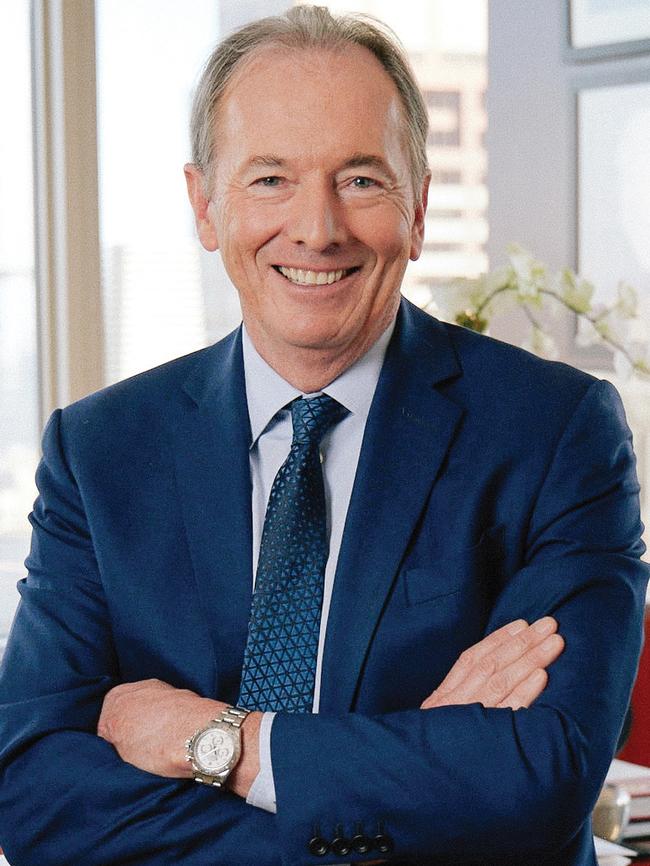
“I’m not sure, it’s the role of regulators to opine on business models. Business models are the preserve of shareholders, management and the board all of whom, in the case of Credit Suisse, singularly failed to monitor what was going on at Credit Suisse.
“But it’s clear that the regulators in Switzerland need to be given more power to opine on these issues, while also respecting the role of shareholders.
“For us, the big lesson going forward … let us not get confused about capital being the answer. There was more than enough capital at Credit Suisse. And certainly I think movements from certain regulators at the moment to try and top up capital are misguided.
“They should be focusing on other issues.”
Outgoing Morgan Stanley boss and Australian James Gorman, speaking alongside Kelleher at the same event, said what financial markets saw this year “was not a banking crisis”.
Rather, it was set off by three US regional banks: SVB, Signature Bank and First Republic. Each of these failed because they all had a very concentrated group of clients, Gorman said.
“This was a crisis for three banks. It was cauterised and by the way, the irony is that part of the solution was for the largest regulated banks to provide uninsured deposits, which put them in jeopardy and their capital in jeopardy, to the tune of $US30bn to help,” he said.
“So the problem children of the first true financial crisis became part of the solution for the next crisis.”
Gorman recently flagged his intention to retire from Morgan Stanley after more than a decade heading the Wall Street bank. He will move to an executive chairman role before standing down fully next year.
johnstone@theaustralian.com.au
More Coverage
Originally published as Rio Tinto’s boss tour China from the ground floor




